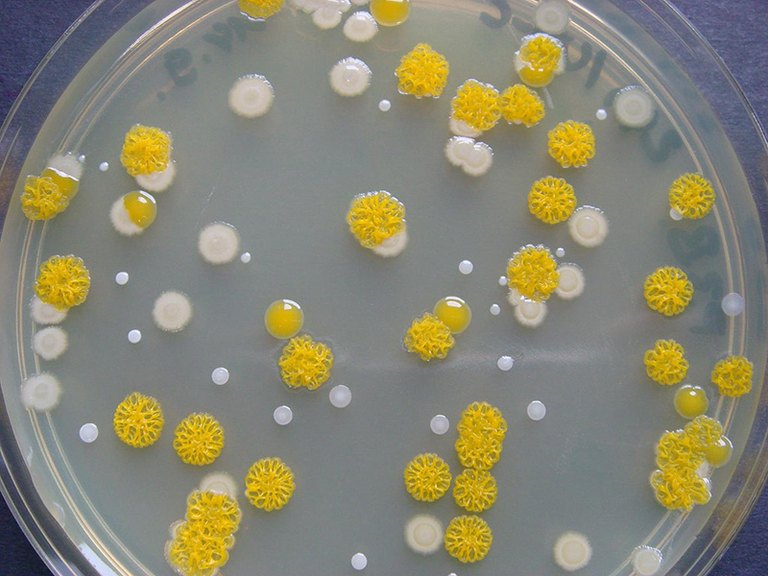Status quo, decontamination, entry routes and influence of storage conditions
Vegetables and fruits are besides cereals the most important food produce of plant origin in Germany. Vegetable produce may come into contact with bacteria, viruses or parasites at various stages of the food chain from cultivation to transport to private households. Especially the presence of human pathogenic bacteria like Salmonella spp., toxin-producing Escherichia coli and Listeria monocytogenes constitute a hazard for the consumers. To assess this risk, two departments of the Max Rubner-Institute, namely the Department of Safety and Quality of Fruit and Vegetables and the Department of Microbiology and Biotechnology, conducted a cooperative, comprehensive study.
So far, only a small number of research projects on the prevalence and tenacity of human pathogenic bacteria in vegetables has been conducted in German-speaking countries. Therefore, the presence of the most important human pathogenic bacteria in produce of plant origin was explored in this study. In total, a number of 600 different fresh plant produce bought in retail in the North as well as in the South of Germany were investigated. The samples were analyzed for the general presence of bacteria (total aerobic mesophilic count) as well as the presence of spoilage bacteria. However, it has to be noted that this study focused on the presence of pathogenic bacteria like Listeria monocytogenes, Salmonella spp., E. coli, Staphylococcus aureus and presumptive Bacillus cereus. The samples were analyzed by using classical microbiological and molecular biological methods. In addition, this study investigated the reduction of pathogenic microorganisms on the surface of specific vegetables and the influence of storage conditions on the microbiological quality and safety.
The results showed a good microbiological quality of cucumbers, carrots, and mushrooms. The microbiological quality of leafy salads was good to medium whereas the quality of fresh herbs was acceptable.
In contrast, the microbiological quality of the ready-to-eat salads and the sprouts was insufficient. Compared to other produce, ready-to-eat salads were highly contaminated (6%) with human pathogenic bacteria. Compared to other produce, here consumers have no possibilities to improve the microbiological quality by treatments like washing, peeling or heating. For sprouts, the general bacterial load was very high and pathogenic bacteria were found in some samples. Moreover, the presence of presumptive Bacillus cereus was increased in some samples of ready-to-eat salads and sprouts concluding that health hazards for consumers cannot be ruled out. Therefore, since several years the MRI has been advising to not consume raw sprouts but rather blanche before consumption.
Investigations on the storage of ready-to-eat salads and sprouts showed that storage conditions have a high impact on the product quality and safety. Especially under inadequate storage conditions, i.e. increased temperature and enhanced storage duration, already present bacteria may proliferate on these products. The MRI advises to limit the period of storage for ready-to-eat salads to a minimum. Products should be stored at max. 4°C. After opening, products should be consumed completely. In addition, the MRI suggested to label such products with an expiration date similar to the labeling of minced meat rather than with a best-before-date, as both products are high perishable foods.
Scientific publication(s)
Fiedler G, Schneider C, Igbinosa EO, Kabisch J, Brinks E, Becker B, Stoll DA, Cho, G-S, Huch M, Franz CMAP, 2019. Antibiotics resistance and toxin profiles of presumptive Bacillus cereus isolates from fresh vegetables from German retail markets. BMC Microbiol 19, 250. https://doi.org/10.1186/s12866-019-1632-2
Becker B, Stoll D, Schulz P, Kulling S, Huch M, 2018. Microbial Contamination of Organically and Conventionally Produced Fresh Vegetable Salads and Herbs from Retail Markets in Southwest Germany. Foodborne Pathogens and Disease. DOI: 10.1089/fpd.2018.2541
Stoll DA, Danylec N, Dötsch A, Becker B, Huch M, 2018. Draft Genome Sequence of Salmonella enterica subsp. enterica Serovar Enteritidis MS 501, a Potential Human Pathogen Isolated from Red Lettuce (Lactuca sativa var. capitata) in Karlsruhe, Germany. Microbiology Resource Announcements 7:e00938-18, https://doi.org/10.1128/MRA.00938-18.


